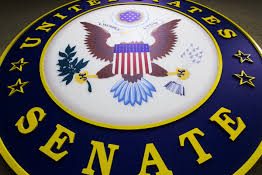WASHINGTON, D.C. – The American College of Emergency Physicians (ACEP) is providing guidance for patients to minimize their risk of getting or spreading the novel coronavirus, COVID-19. A new resource from ACEP, Stop the Spread: A Patient Guide to the Novel Coronavirus (COVID-19), provides tips on how to minimize the risk of contracting the virus—including whether you should wear a face mask—and how to determine whether patients should visit an emergency department.
“We are in the middle of flu season, which means emergency departments are already strained. To make sure that everyone can get the care they need, it’s important to know when to go to the emergency department if you think you have COVID-19,” said William Jaquis, MD, FACEP, president of ACEP.
Older patients and those with chronic or pre-existing conditions have the highest risk of serious cases or complications. If you think you are sick with COVID-19, consider your symptoms. Call your doctor if you’ve been in contact with someone who already has COVID-19 or has traveled to an affected region and with 14 days you develop a fever, cough or shortness of breath.
If your symptoms are mild, contact your primary care physician to discuss your best options for care. Call 911 or visit your closest emergency department if:
- You’re experiencing a medical emergency,
- You’re sick enough that you need to go to the hospital, especially if you recently started experiencing shortness of breath, or
- You’re sick and you are a high-risk individual, such as an older patient or a person with an already weakened immune system.
The situation with the outbreak is evolving daily, and while the federal government has taken steps to significantly expand COVID-19 testing, it will take time for the health care system to ramp up its testing capabilities and locations
“Your local emergency department may not yet have the COVID-19 test. Your primary care physician can decide if you meet the criteria and help determine where to get tested if necessary,” said Dr. Jaquis.
As anticipation grows for more widespread community transmission of COVID-19 in the U.S., emergency physicians are on the frontlines caring for those affected. ACEP has a series of resources for patients, policymakers and emergency care teams. Visit www.acep.org/COVID19 for physician resources including clinical guidance and best practices, checklists and the National Strategic Plan for Emergency Department Management of COVID-19. The latest patient information is available at www.emergencyphysicians.org/COVID19.
The American College of Emergency Physicians (ACEP) is the national medical society representing emergency medicine. Through continuing education, research, public education and advocacy, ACEP advances emergency care on behalf of its 40,000 emergency physician members, and the more than 150 million Americans they treat on an annual basis. For more information, visit www.acep.org and www.emergencyphysicians.org.
SPREAD THE NEWS
COMMENT, Like, Follow & SHARE @I70Scout
CURRENT EDITION
WEATHER & TRAFFIC PUZZLES RECENT NEWS ADVERTISE WITH US
SPREAD THE NEWS
COMMENT, Like, Follow & SHARE @I70Scout
CURRENT EDITION
WEATHER & TRAFFIC PUZZLES RECENT NEWS ADVERTISE WITH US

